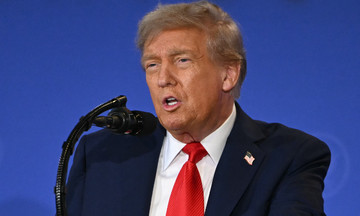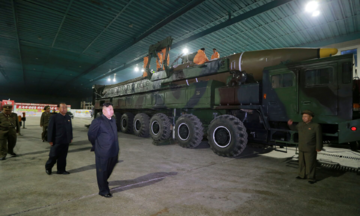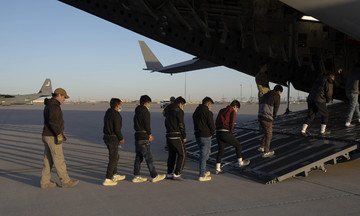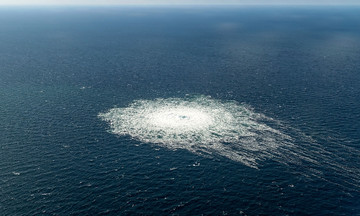In the early hours of 22/6, the US launched Operation "Midnight Hammer," firing missiles and dropping 14 bunker-buster bombs on three Iranian nuclear facilities: Fordow, Natanz, and Isfahan. The Iranian parliament subsequently voted to close the Strait of Hormuz, pending a final decision from the Supreme National Security Council.
Ultimately, Iran chose not to pursue this course of action. On 23/6, the Islamic Revolutionary Guard Corps (IRGC) announced a "powerful and destructive" missile attack on Al Udeid Air Base in Qatar and another base in Iraq, both housing thousands of US troops. However, US media, citing three anonymous Iranian officials, reported that Tehran had forewarned Doha about the attack to minimize casualties.
Hours later, US President Trump announced a ceasefire between Israel and Iran, scheduled to begin around 4h GMT on 24/6. Trump asserted that the ceasefire would end 12 days of hostilities.
The Strait of Hormuz, an inverted V-shaped waterway between Iran, the United Arab Emirates (UAE), and Oman, connects the Persian Gulf to the north with the Gulf of Oman, which opens into the Arabian Sea. The strait is 161 km long, with its narrowest point at 33 km. Shipping lanes in each direction are only about 3 km wide.
Data from the US Energy Information Administration (EIA) shows that in 2024, over 25% of the world's seaborne oil trade and 20% of liquefied natural gas (LNG) passed through Hormuz. Saudi Arabia, Iran, the UAE, Kuwait, and Iraq export most of their oil through this route.
If Iran decided to block the strait, it could easily use missiles or small warships to attack and stop oil, gas, and other strategic cargo ships.
The shallow waters of the Strait of Hormuz make ships vulnerable to mines. Iran possesses thousands of mines, ranging from older contact mines to modern versions that lie dormant on the seabed and rise when they detect passing ships.
"Iran's geographical advantage allows it to shock the oil market, driving up prices, increasing inflation, and hindering US President Donald Trump's economic agenda," Mohammad Ali Shabani, an Iran expert at the UK-based Amwaj news agency, told CNN.
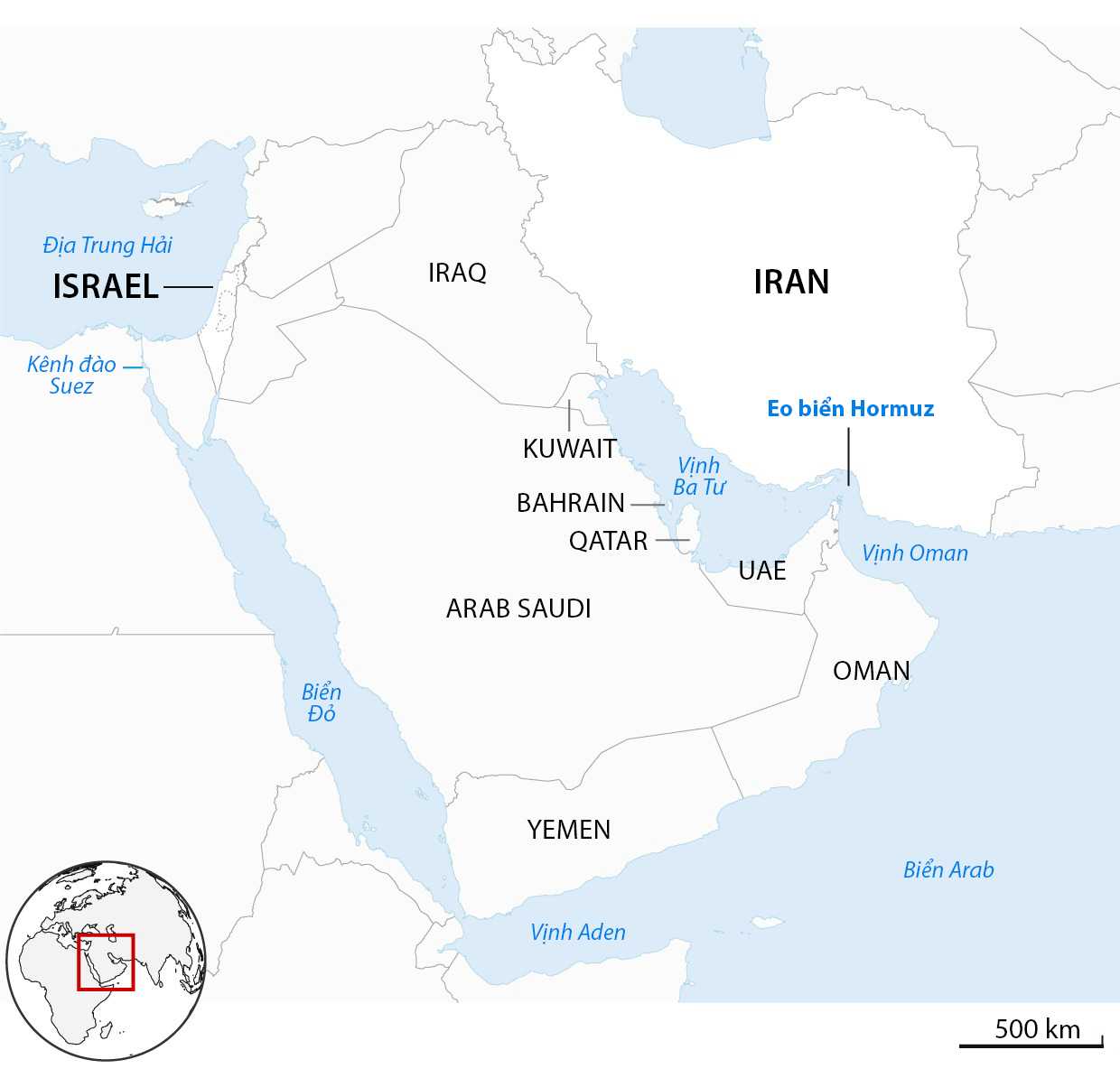 |
Location of the Strait of Hormuz. Graphics: Guardian |
Middle Eastern oil powers have virtually no alternative export routes if Hormuz is blocked. They have overland pipelines, but their capacity is limited and has been at maximum since Houthi forces in Yemen blockaded the Red Sea in late 2023 to show support for Hamas during the conflict with Israel.
If Iran were to block the strait, global oil prices would soar above 100 USD per barrel, according to investment bank Goldman Sachs and energy consultancy Rapidan Energy. Prolonged high oil prices would have significant consequences for the global economy.
Historically, the Strait of Hormuz has never been completely blocked. During the Iran-Iraq war in the 1980s, Iran mined the strait in retaliation for Iraq's attack on Kharg Island. The conflict escalated into a tanker war, with both sides attacking 451 vessels, driving up oil prices and shipping insurance costs.
When Kuwaiti tankers began hitting Iranian mines, the US Navy intervened, escorting their ships through the Persian Gulf and the Strait of Hormuz. In 1988, a US warship struck a mine, prompting Washington to launch a retaliatory operation that heavily damaged the Iranian navy. The Iran-Iraq war ended in August 1988 with a UN-brokered ceasefire.
In 2011, Iran also threatened to block the Strait of Hormuz in response to Western sanctions but later abandoned the idea.
Observers note that Iran has historically been hesitant to play its "trump card" of Hormuz, as blocking the strait would also affect Tehran's oil exports.
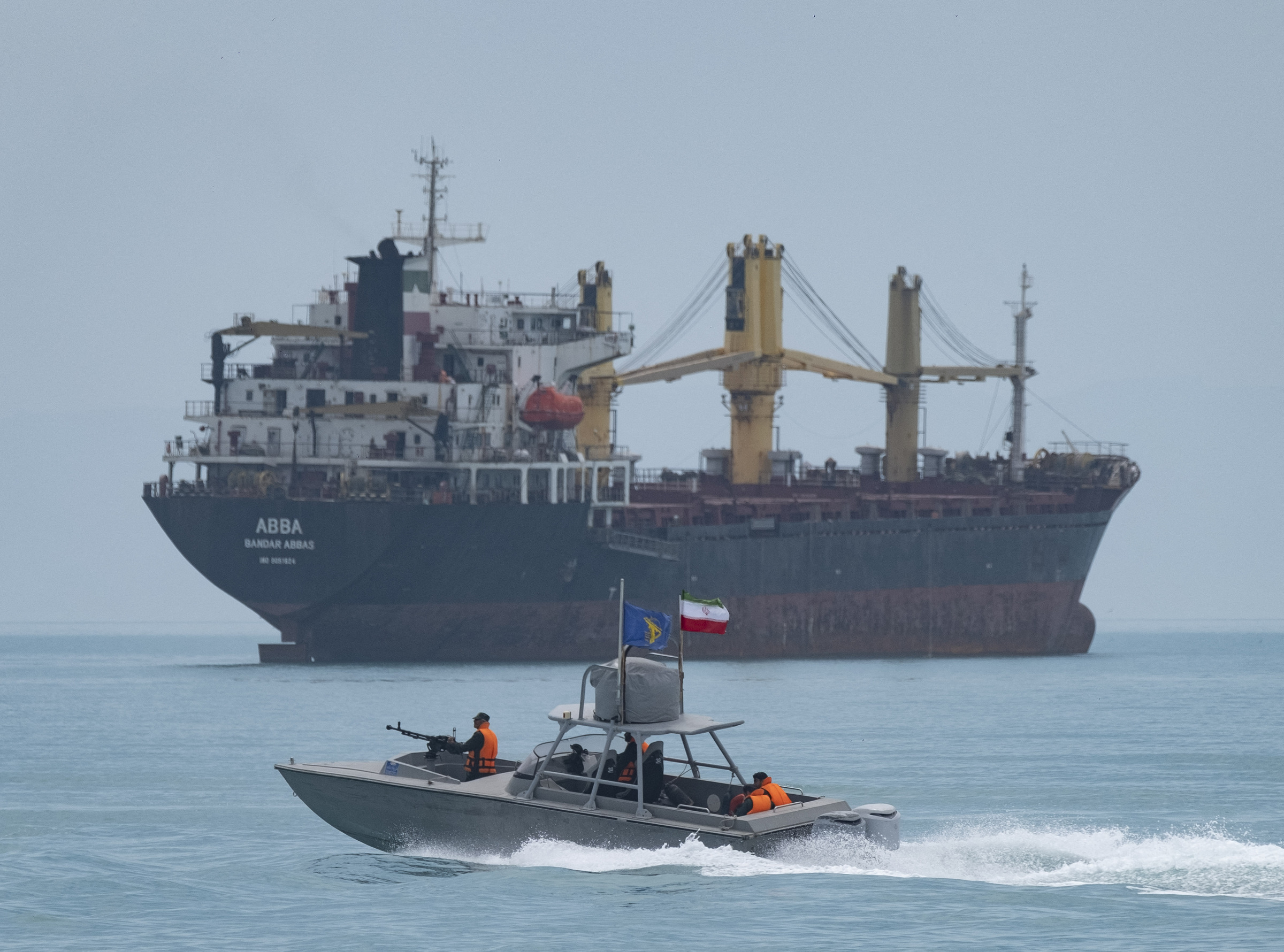 |
An IRGC patrol boat in the Persian Gulf in April 2024. Photo: AFP |
Iran is the third-largest producer in the Organization of the Petroleum Exporting Countries (OPEC), extracting about 3.3 million barrels per day. In May, Iran exported 1.84 million barrels per day, mainly to China, according to energy data firm Kpler.
"Iran would be shooting itself in the foot by closing Hormuz, as it would lose a key source of revenue," Matt Smith, an oil analyst at Kpler, told CNBC.
"Hormuz is a strategic bargaining chip. If they use it, they have nothing left," said Anthony Gurnee, former CEO of a shipping company.
According to Gurnee, US warships in the Middle East would immediately respond if Iran completely blocked Hormuz. The US 5th Fleet is based in Bahrain, committed to "protecting freedom of navigation" in the strait. Investment bank JPMorgan believes the US would view Iran's closure of Hormuz as a "declaration of war."
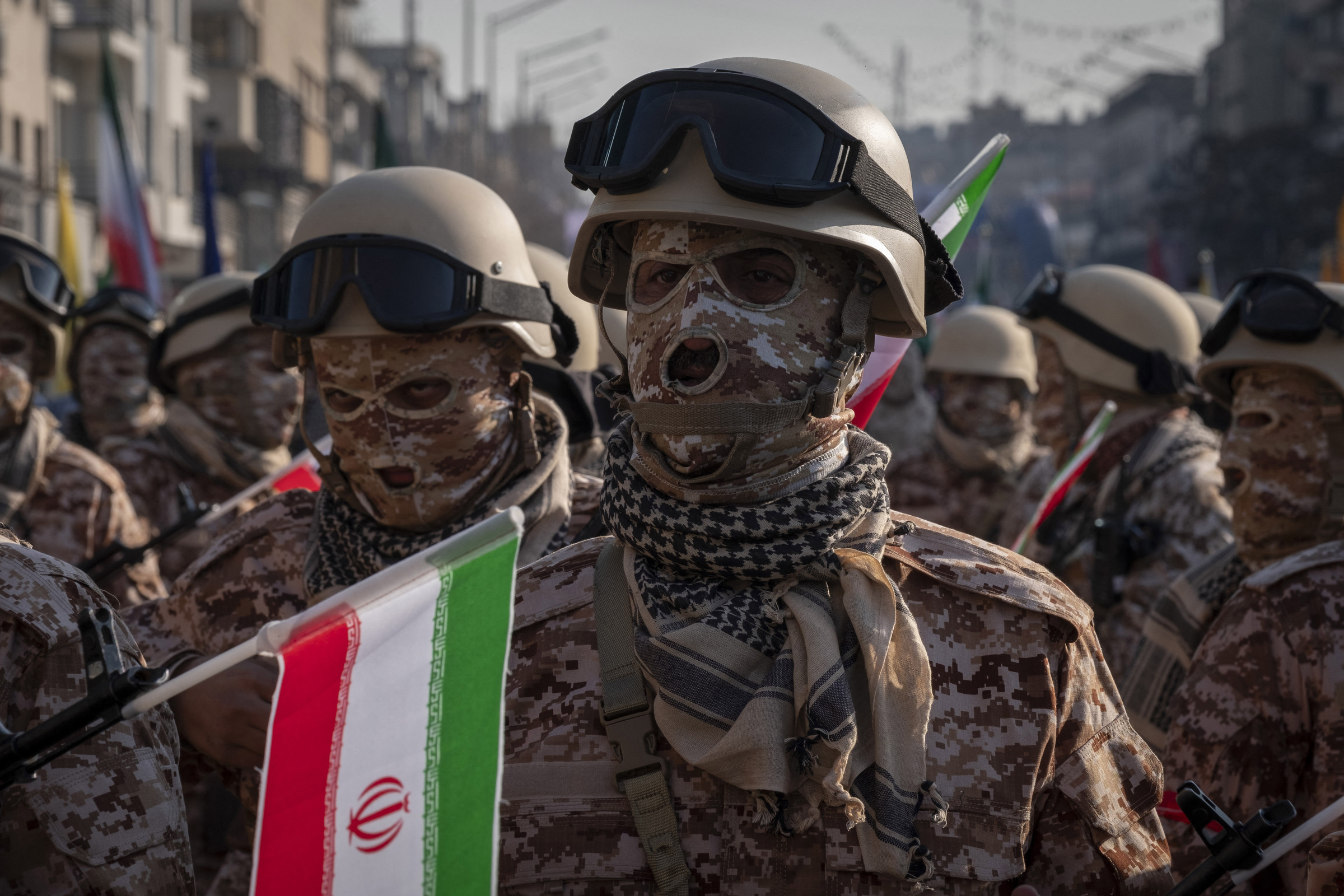 |
IRGC members parade in Tehran in January 2025. Photo: AFP |
Hamidreza Azizi, a researcher at the German Institute for International and Security Affairs, believes that strategically, Iran could sacrifice short-term economic interests for leverage. However, Tehran did not choose this option as it would "mean losing revenue, facing domestic outrage, and risking long-term reputational damage."
US Secretary of State Marco Rubio warned on 22/6 that blocking Hormuz would be "suicidal" for Iran and declared that Washington still had many response options.
"Other countries' economies would suffer far more than ours," Rubio told Fox News. "It would be a significant escalation that would lead to a response from many parties, not just us."
Nhu Tam (According to CBS News, WSJ, CNN)



